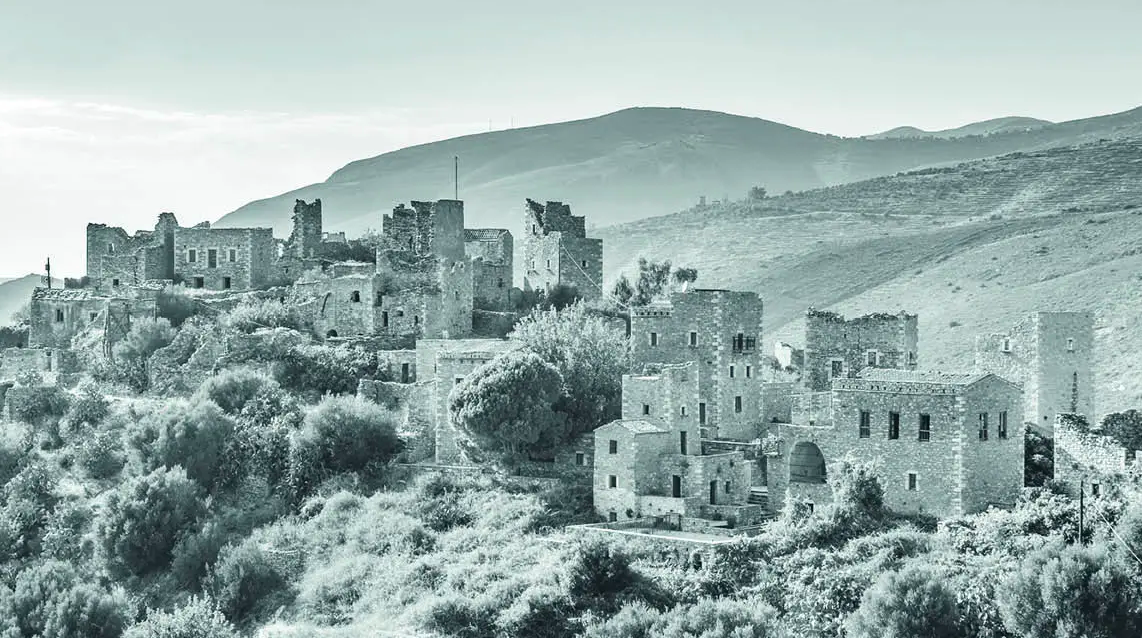This chilling tale from the late 1950s, featured in the book “100 Crimes in Greece,” plunges into the heart of Mani, a region where unwritten laws of honor and vengeance held sway. The quintuple murder sent shockwaves through the nation, exposing a deep societal rift in a country still grappling with its post-war identity.
A Family Torn by Taboo
The perpetrator, driven by a perceived need to salvage his family’s honor, committed an unspeakable act. He claimed his father (60) and uncle (65) had engaged in incestuous relationships with his three sisters, aged 25, 30, and 35. Adding fuel to the fire, his uncle had impregnated one of the sisters, promising marriage after divorcing his wife.
A Grisly Scene Unfolds
On the morning of April 10th, 1957, the man entered the family’s sheepfold, where he fatally shot his uncle and father. He then turned his gun on his sisters, killing two at the sheepfold and the third at their village home. Despite his attempt to flee, authorities apprehended him, his chilling confession leaving them stunned.
Greece Divided
The crime ignited a firestorm of debate across Greece. While some condemned the murders, others, influenced by the deeply rooted code of honor in Mani, viewed the perpetrator as a tragic hero who cleansed his family’s name. Newspapers published articles portraying him as a man left with no choice, forced to take extreme measures to restore his family’s standing in a society rife with judgment.
A Trial Under Scrutiny
The trial, held in Corinth a year later, captivated the nation. The courtroom overflowed with Mani residents, eager to defend the accused. They argued the father’s home had become a den of iniquity, justifying the son’s actions. Even the perpetrator’s mother and wife expressed relief that he had “cleansed the place,” highlighting the complex societal norms surrounding honor and retribution.
Justice or Clemency
Despite the prosecution’s pursuit of a harsh sentence, the jury, swayed by public sentiment and the defense’s portrayal of the perpetrator as a victim of circumstance, delivered a lenient verdict: 20 years imprisonment. This decision, a stark contrast to the potential for execution, underscored the deep divide in Greek society regarding tradition, justice, and the weight of family honor.
Murders That Shocked Greece from the Book “100 Crimes in Greece”
Athens, 1936: The “Dragon of Kalogreza” who raped, tortured, and killed young children.
Athens, 1931: The crime at Harokopou that became a song and a massive hit in the interwar period.
Athens, 1923: The murder of Yiannakis Kalomoiris, son of the great Greek composer, which scandalized Athens.
Kythera, 1909: The murderous rampage of a cobbler that left 15 dead.
Athens, 1929: The “Rocambol” gang, the Greek Bonnie and Clyde, were siblings and lovers.
Mani, 1920: The crime of the century that nearly led to a vendetta.
Piraeus, 1906: The massacre between Cretans and Maniots.
The Dilesi Massacre: The Arvanitakis gang and the international disgrace of Greece in 1870.
Crete, 1955: The slaughter in Vorizia.
Ask me anything
Explore related questions





